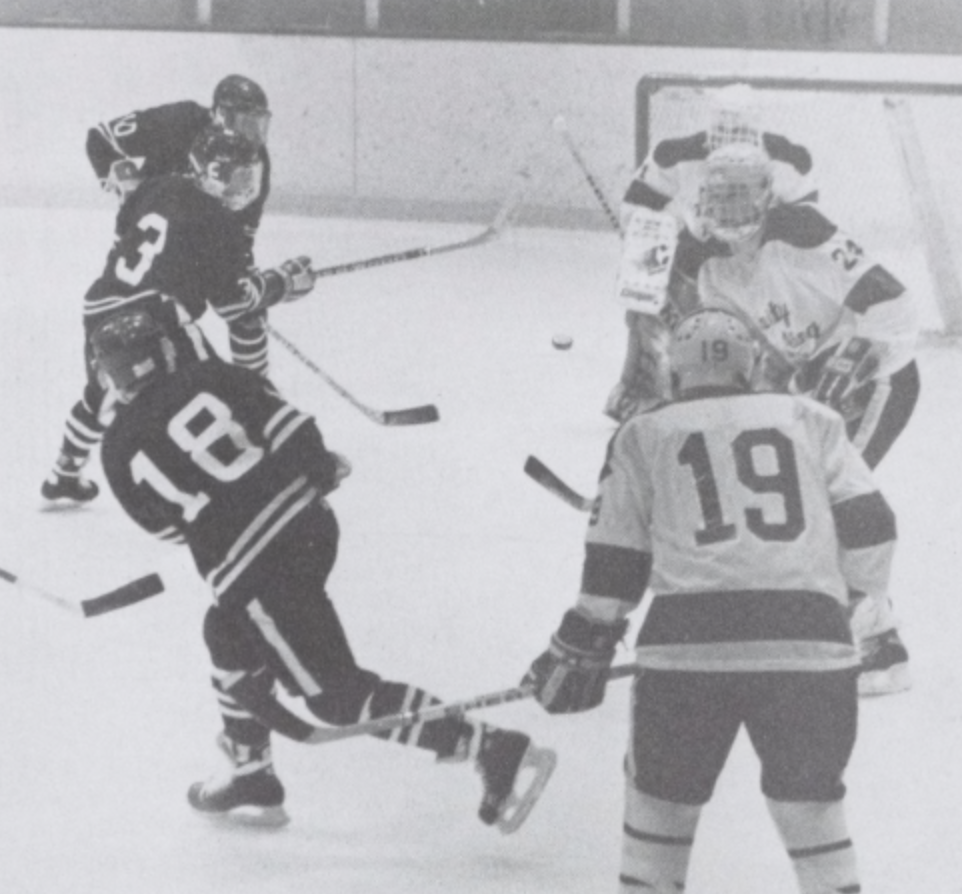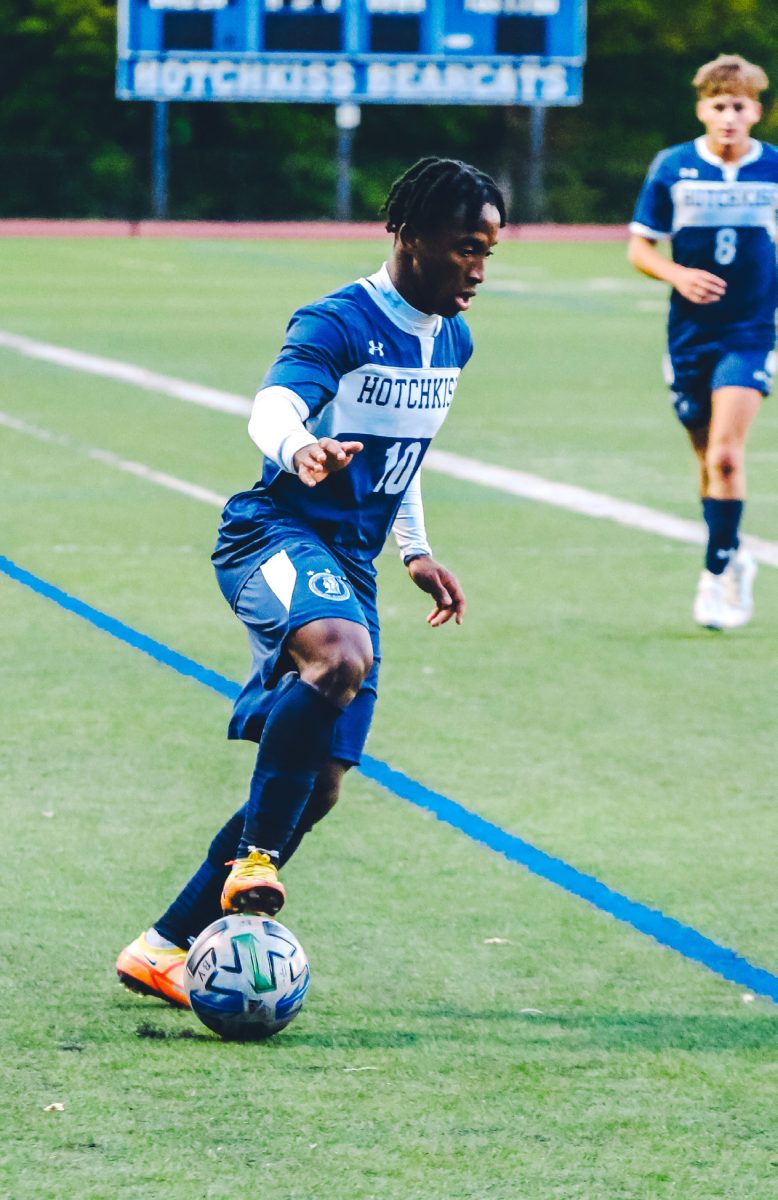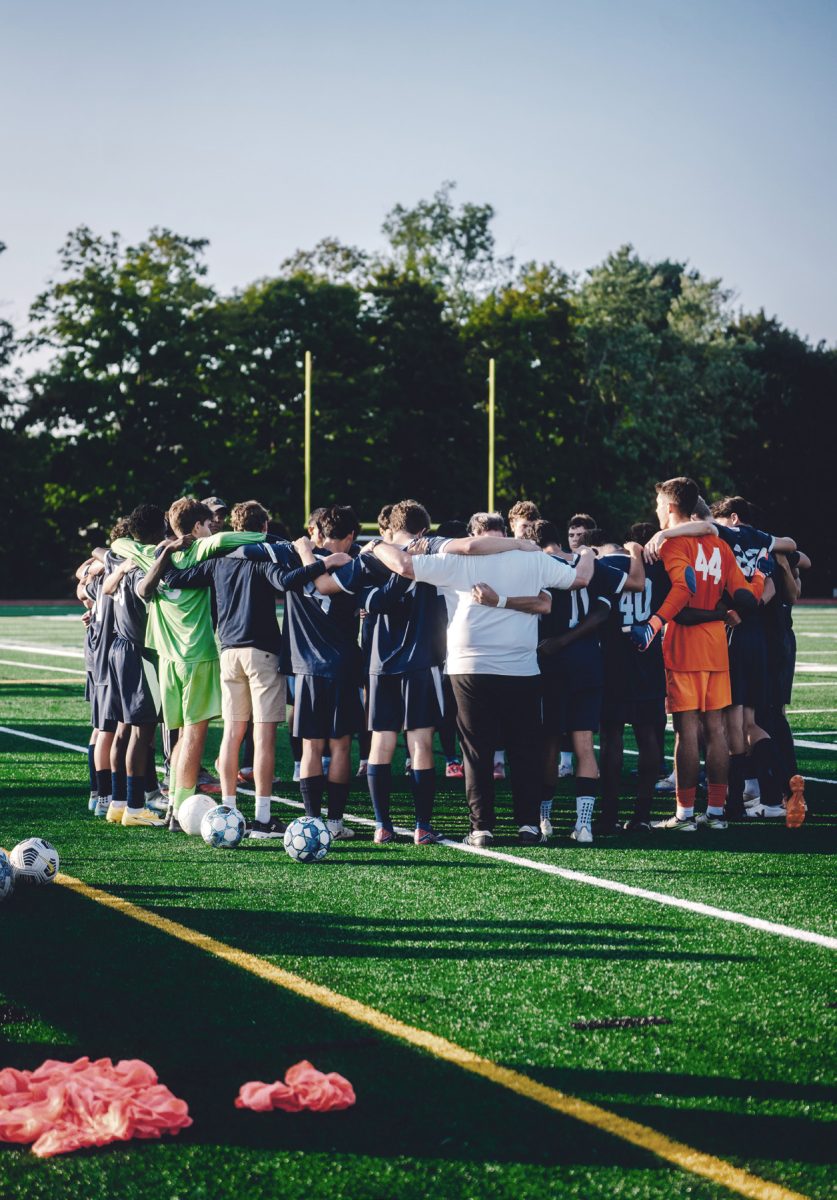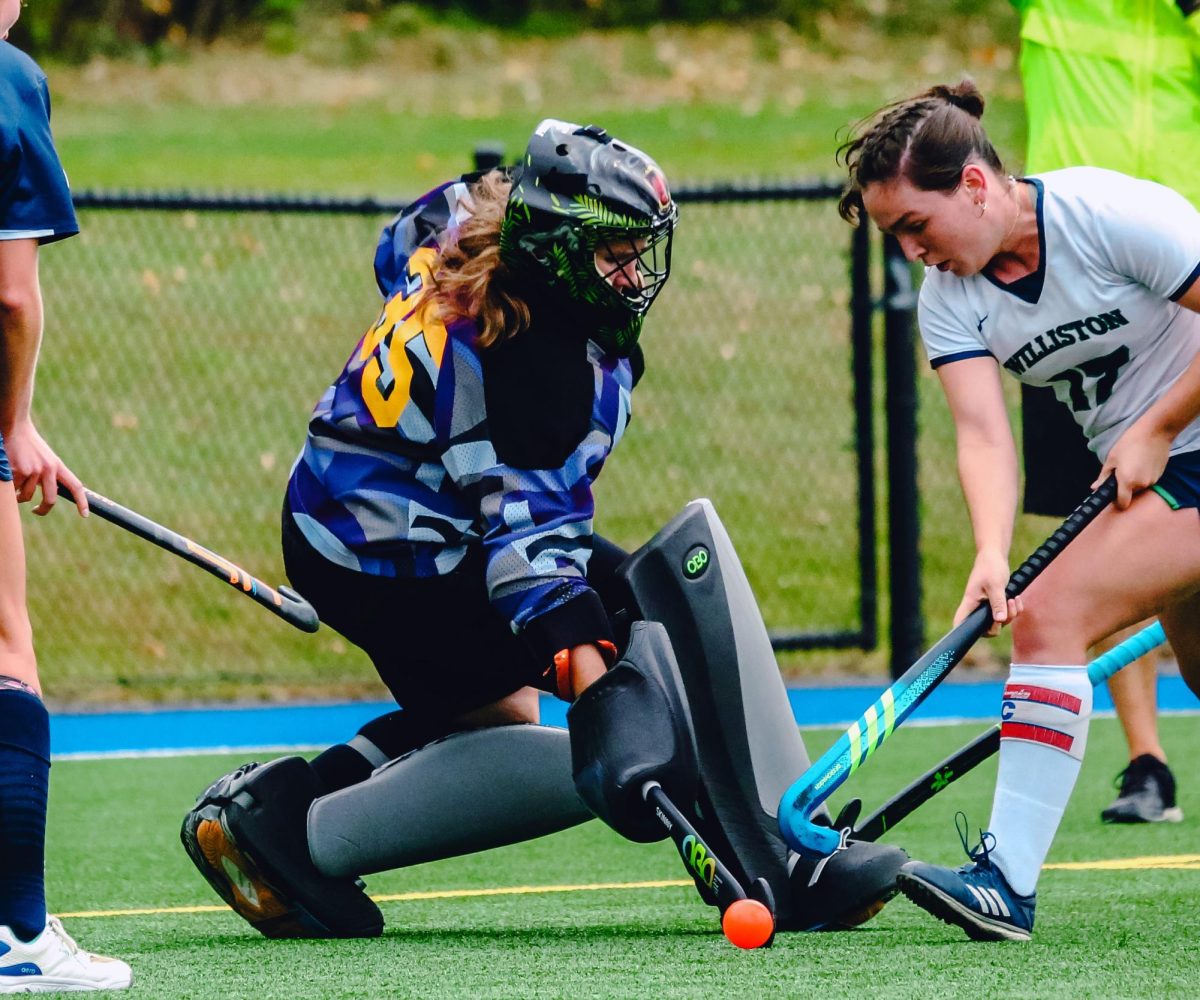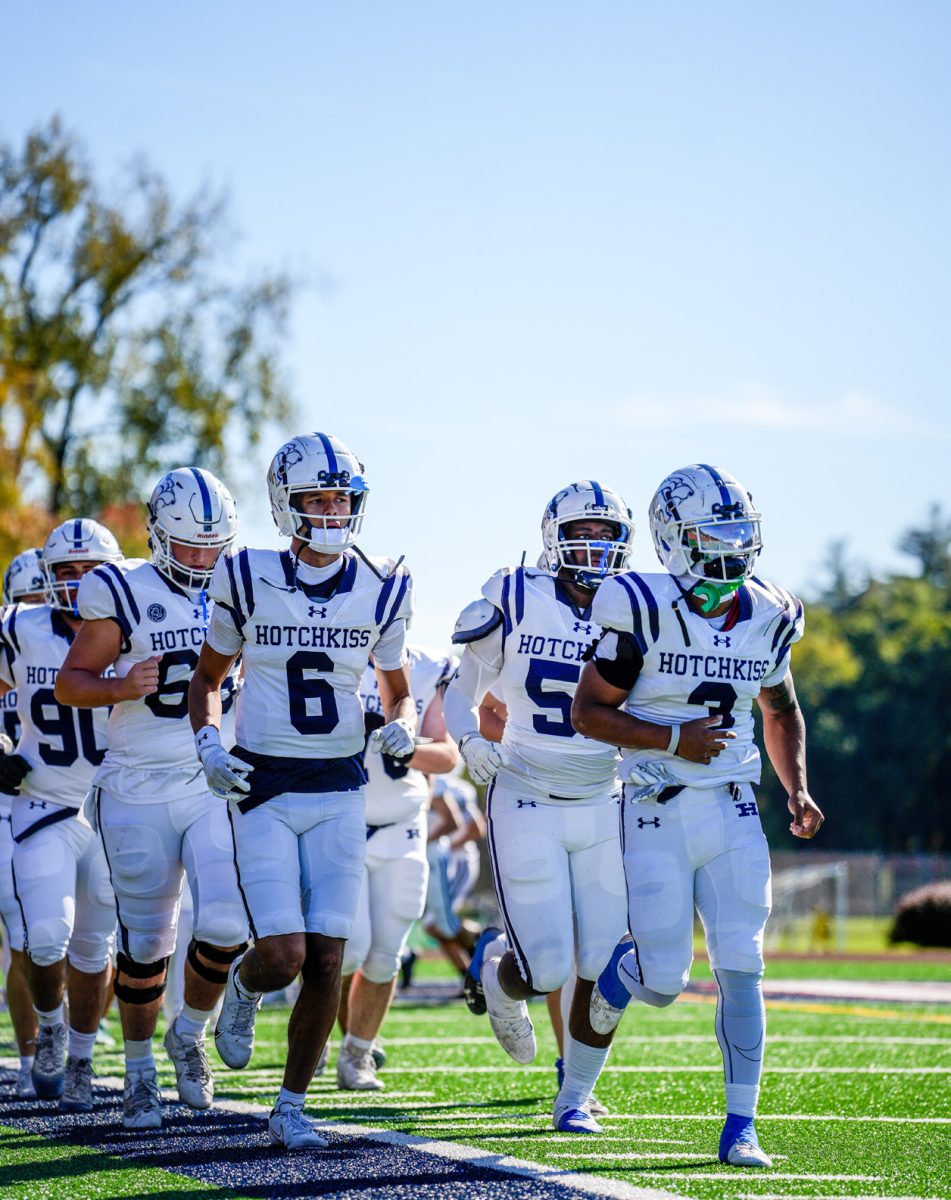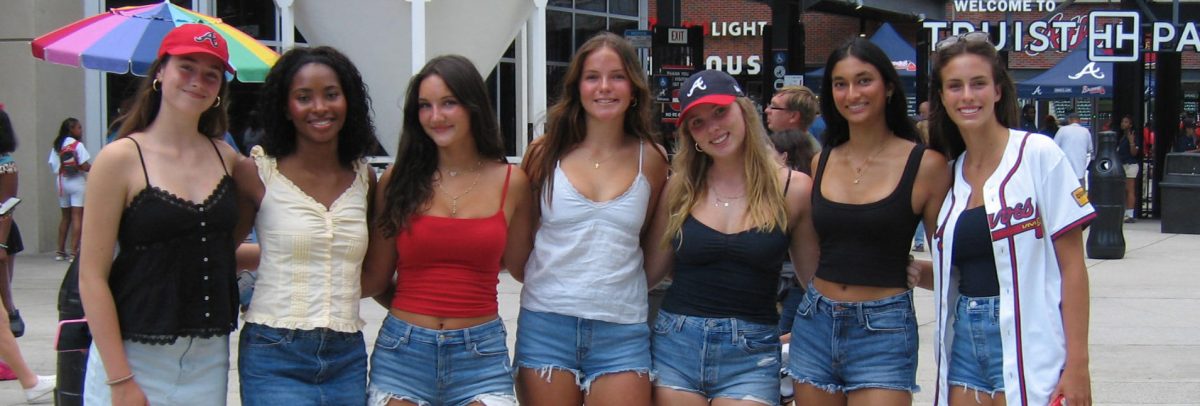Matt Herr ’94 attended Hotchkiss from 1989 to 1994, where he played and served as captain for Varsity Baseball and Hockey. He won the New England championship in 1991 with baseball and 1994 with hockey. He went on to the University of Michigan, where he was the captain and two-time Division One hockey National Champion. He was drafted by the Washington Capitals and later played for the Philadelphia Flyers, Florida Panthers, and the Boston Bruins before retiring in 2005. After coaching hockey and teaching at the Kent School with his wife, Herr worked in player and industry development roles for USA Hockey and the Pittsburgh Penguins and is currently the Senior Director of Youth Hockey and Industry Growth for the National Hockey League. He is one of three Hotchkiss alumni to play in the NHL, along with Torrey Mitchell ’04 and current Dallas Stars winger Luke Glendening ’08. Julian Brown ’25 sat down with Mr. Herr on Zoom to discuss Hotchkiss, his pathway to the NHL, and his life and career after retiring from pro hockey.
Julian Brown ’25: What brought you to Hotchkiss?
Matt Herr ’94: My path to Hotchkiss was a little different, as neither of my parents ever knew anything about boarding school. I came in and watched the hockey team play. They used to play the West Point JV team back in the day. So I went over to meet with Jeff Kozak and a couple other people.
I was like, “Oh, that sounds interesting.” There were no rinks around. It wasn’t like now where there are rinks all over. I got in and played for four years. It was one of the best experiences I’ve had. I left Hotchkiss and then went to Michigan. It was really rare at the time to go right from a prep school to D1 hockey. You probably know a lot of your guys now play junior hockey for a year or two.
JB: Yeah. They’ll play juniors and then they’ll commit somewhere after a few years.
MH: Yeah, exactly. I went right as an 18 year-old to the University of Michigan. There was nothing like the [NIL] payments that these guys are getting now. I was going to be there for four years and work my way up. I think I went from the fourth line to the third line to the second line and then finally was the captain of Michigan. I played baseball also.
I was a draft pick by the Atlanta Braves in the 29th round of the MLB Draft and was a fourth-round pick the same year in the NHL Draft by the Washington Capitals. It was rare to be able to play two sports and, even then, it was almost impossible. I’ve always done it, and Hotchkiss allowed me to be able to do that.
I’ve moved almost 12 times in my NHL career, getting traded, going to affiliates, signing as a free agent. The one thing that I would say is that sports are unstable, but it’s rewarding and fun at the same time, and sometimes you have to move, too.
After moving to USA Hockey, I was doing more business, more promotion, and sales things, but I had a region. I covered New York and the Atlantic District, which was New Jersey and the surrounding area. I was with the national office, and I worked a lot with the volunteers. From there, the Pittsburgh Penguins CEO David Morehouse knew what I was doing at USA Hockey and knew I had some knowledge of rinks and how they operated.
He hired me to be the executive director of the UPMC Lemieux Sports Complex, the new facility that the Penguins were opening. It’s pretty cool. It’s been open for a while now, and I was in charge of all the development and growth of the facility and of the game of hockey in the area.
Everything from opening the $85 million facility, we did everything. I hired about 30 to 40 people and they worked on maintenance on the Zamboni, the ice, and the locker room. I worked with players such as Gary Roberts. He helped with the fitness facility and cafe. It was a move for me to be more business-oriented. I went back and I got my MBA while I was still playing.
After that, I was saying to myself, “Hey, you did this in Pittsburgh. Can we do it on a large scale level?” So, now I’m the Senior Director of Youth Hockey and Industry Growth for the National Hockey League. Every NHL team in the US has a youth program, which is sponsored by the league and the Players’ Association. The league hired me, Bryan Smolonski, who played in Boston, and former LA Kings winger Sean Whyte. We started out as ambassadors, and we were going out and helping the clubs evolve their youth programs.
That job evolved into what I do now — managing a field team. We go around with $60 million a year — the largest growth fund in pro sports —that my boss, Executive Vice President Kim Davis, and our team manage. Our goal is to use those funds as a revenue driver and a growth component for hockey across the country, in everything from gaming to different ticketing strategies. We’re trying to look at innovative ways to grow the sport of hockey, because hockey is behind. Football is bigger than we are, basketball is bigger than we are, baseball is bigger than we are. Even soccer’s gaining on us really fast as a major sport here in the US. The NHL is taking that fund and investing in an attempt to grow the sport.
JB: How would you describe your time at Hotchkiss? What experiences do you still think about today?
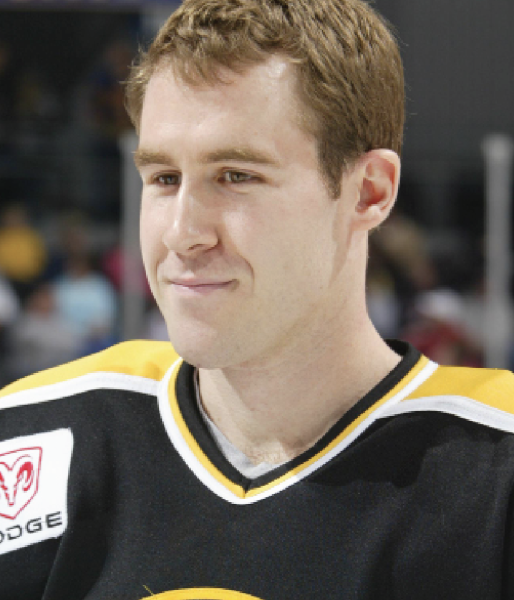
MH: It was the friendships that I made. It’s funny that you bring this up. I just spoke to an old Hotchkiss friend, Colm Singleton ’94, who was a Rhodes Scholar after going to Princeton. He was a good friend of mine and we somehow convinced him to manage the hockey team. He’s still a fantastic friend of mine and he was in my wedding.
We used to always play beach volleyball. I don’t know if you guys still play volleyball as loud and as competitively as we did. I was never a big volleyball person, but I was like, “Why not?” We’ll enter a team and — I don’t know if they still talk about that — but it got violent sometimes.
There’s a lot of things that you go through with your Hotchkiss friends. Even with my college friends and teammates that I won two National Championships with, I probably am closer to my former Hotchkiss friends.
So, I think it’s the friendships that you make and the bonds that you have with them, the people you guys go through so much with — between sports and school and girls, boys’ problems that you have.
You can find hockey anywhere, but Hotckiss prepared me for the adversity that you deal with in college hockey and the NHL. It had its ups and downs, and it isn’t even all about hockey. It is about the issues you are dealing with, trying to balance school, trying to balance having only one rink at the time.
We had to sometimes practice during the graveyard. We called it the graveyard, late at night. One year, Prep year, I had to carry the sticks, as I was the only freshman on the team. They made me carry their sticks and take their skates to go get sharpened.
There’s probably even a picture somewhere along the way in the Misch. There was this late ice time, so you had to learn to balance your schoolwork, your time, and your nutrition. There was nobody there to make sure we went to dinner and ate enough.
JB: Was playing in the NHL always something you aspired to do?
MH: I think I was just having fun. I made the US Select team as a 17 year-old. I was lucky enough to play on the World Junior team, and, by the time I was a sophomore at Michigan, I was realizing that I was pretty good at what I was doing. But at Hotchkiss, I was just hanging out with my friends and playing hockey. There was nobody counting goals. I think of Equipment Manager Frank Marino, who took care of us in the locker room all the time. I had 29 goals in 25 games. I scored, and he was always counting for me, and I never really thought anything about it. There were no online posts about how our team was doing; there was no digital kind of recording; there was no New England Hockey Journal.
We didn’t really watch a lot of film. Honestly, I was just having some fun with my friends.
JB: How is the NHL working to support the future of hockey, more generally?
MH: They’re obviously trying to make the game more diverse, to make sure that we see the changing demographics of the United States in hockey. I think one of our philosophies is we want every hockey community, every rink, to reflect the community that surrounds it.
You go to a lot of rinks right now and, unfortunately, I don’t know if that’s the case. We’re trying to make sure that it’s reflective of the communities that we’re seeing. If it’s not ice hockey, maybe it’s ball hockey. It doesn’t necessarily have to be an on-ice experience to be what we’re looking for.
JB: What advice would you give to aspiring hockey players who want to play at the higher levels, in college or beyond?
MH: Make sure you’re working hard and that you’re okay with adversity, because there’s a lot of adversity right now. There’s a lot more adversity in the game than when I was coming through.
My process was easy. You sign, you’re going to be [at the university] for four years. You might be sitting in the stands, you might be a scratch, you might be on the fourth line, but you are on a D1 roster. These kids now that are coming up through — you know there’s a lot more going on.
I would just say: stay true, keep working, and make sure that you follow your path. Your path is not necessarily that of someone else.
JB: What steps should people aspiring to go into sport management take?
MH: Get some experience. Everybody wants to go right into school, but there’s a lot of avenues, right? I’m like, “Oh, can I go into marketing? Can I go into sales?” You know, there’s a lot of different avenues in sports and you have to be ready for some weird hours.
At a lower level, whether it’s marketing or finance, I met a lot of people who were in hockey who are still working in it. I think that’s a great thing for our sport and for people who are aspiring to climb into sports.
JB: Did you ever expect to end up working for the NHL or having a front office role?
MH: No. It just kind of came about as I’ve tried to stay in the game. I run into a lot of former hockey players, and I’m very lucky to still be doing something that I love to do. I think that would be my advice to anybody — find something you love to do. I’m sure your parents and everybody’s always told you that, but it really pays off.
I’m very lucky to work with a lot of good people who also love the game of hockey and want to grow it. I’ve been very fortunate to be able to stay in the game that’s given me so much.

